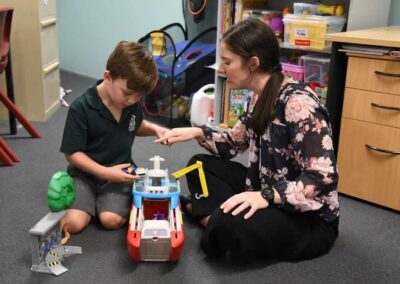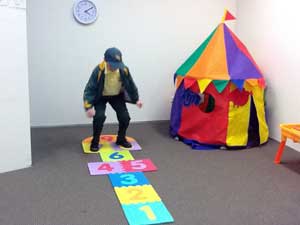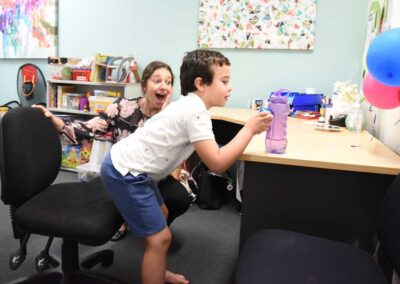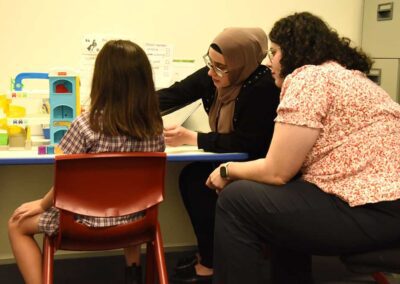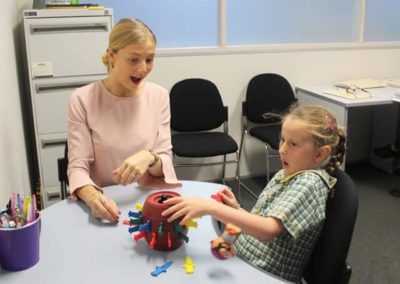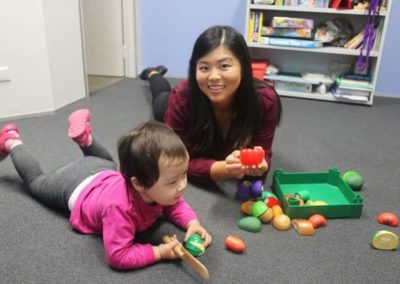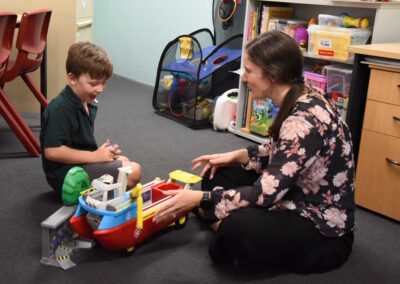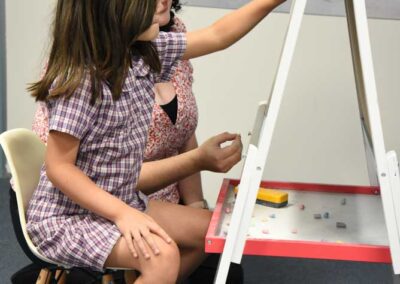As children learn to talk, their speech often sounds a little unclear. This is a normal part of development – most children simplify sounds as they’re learning to coordinate their tongue, lips and mouth. But how do you know when speech sound errors are typical for their age, and when it might be time to seek help from a speech pathologist?
Below is a simple guide to what’s expected at different ages, what to listen for, and what to do if you’re unsure.
What’s Typical in Early Speech Development
Every child develops at their own pace, but there are general patterns most follow:
- By 2 years: Your child should be using lots of early sounds like p, b, m, n, h, w. Words might sound a little unclear (for example, “tat” for “cat”), but you should understand about half of what they say.
- By 3 years: You should understand most of what your child says, even if strangers can’t. Sounds like t, d, k, g, f and s may still be tricky. You might hear “poon” for “spoon” or “doat” for “goat”.
- By 4 years: Most sounds are becoming clearer, though some later-developing ones like r, l, sh, ch, th might still be emerging. Your child should be mostly understood by unfamiliar listeners.
- By 5 years: Speech should be clear and easy to understand, even to people outside the family. Children may still occasionally say “fink” for “think” or “wabbit” for “rabbit”, but this usually resolves by around age 6-7.

Examples of What’s Normal
Children often use patterns called phonological processes as they learn. These are predictable and typical for certain ages. Here are a few common ones:
- Fronting (saying front sounds instead of back ones): “tat” for “cat” – normal up to about age 3½.
- Stopping (replacing long sounds with short ones): “tun” for “sun” or “dump” for “jump” – normal up to around age 4.
- Cluster reduction (leaving out one sound in a blend): “pane” for “plane” or “geen” for “green” – normal up to about age 4½.
- Gliding (saying “w” or “y” instead of “r” or “l”): “wun” for “run” or “yike” for “like” – normal up to around age 5.
These are part of typical learning, and most children grow out of them as their speech system matures.
When to Seek Help
You might consider seeing a speech pathologist if:
- Your child is hard to understand compared to other children their age.
- They are frustrated when others don’t understand them.
- You notice unusual errors that don’t fit typical patterns, like leaving out lots of sounds (“ca” for “cap”) or mixing up sounds in ways that seem random.
- Speech hasn’t become clearer over several months.
- Your child is 5 or older and still making frequent errors with sounds like k, g, s, l, r, sh, ch, th.
- Your child had frequent ear infections, hearing concerns, or developmental differences that may have impacted speech development.
Functional Signs in Everyday Life
Sometimes the signs appear in day-to-day situations. For example:
- Your child says “tar” for “car” and the teacher can’t understand them during show and tell.
- When they ask for “bish” instead of “fish” at dinner, family members often have to ask them to repeat.
- They avoid using certain words because they’re hard to say.
- They get upset when you or others don’t understand what they mean.
If any of these feel familiar, it’s worth checking in with a speech pathologist. Even mild speech difficulties can affect confidence, participation and early literacy skills.
What a Speech Pathologist Can Do
A speech pathologist will assess how your child produces sounds and identify which ones are developing typically and which may need support. Therapy is often play-based and fun – it might involve games, picture cards, or movement activities to teach new tongue and mouth positions.
For example, if your child is working on “sh”, they might play a fishing game and say words like fish, brush, wash each turn. If they’re working on blends like “sp” or “pl”, they might build “space rockets” or draw “planes” while practising.
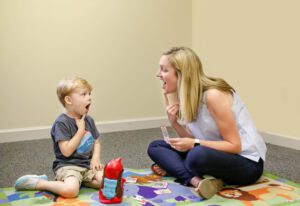
The Bottom Line
Some speech sound errors are completely normal in the early years. But if your child’s speech seems unclear, hasn’t improved over time, or is causing frustration, trust your instincts and reach out for advice.
Early support can make a big difference – and speech therapy doesn’t just help children say sounds correctly, it also boosts confidence, communication and connection with others. If you’re concerned about your child’s speech, you can contact us at Speak, Learn and Grow Speech Pathology Services on (02) 8522 7024 or fill in this form.

